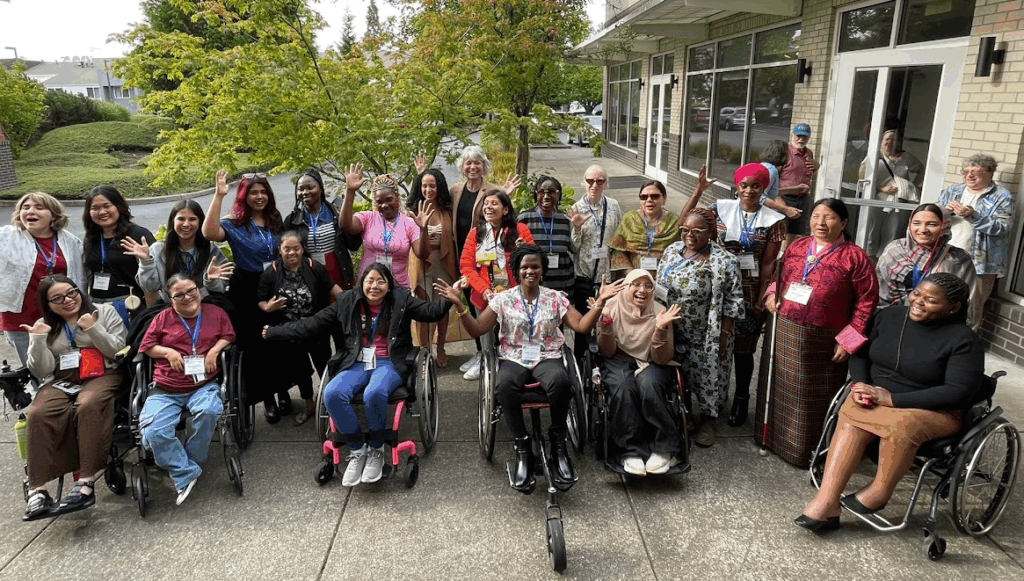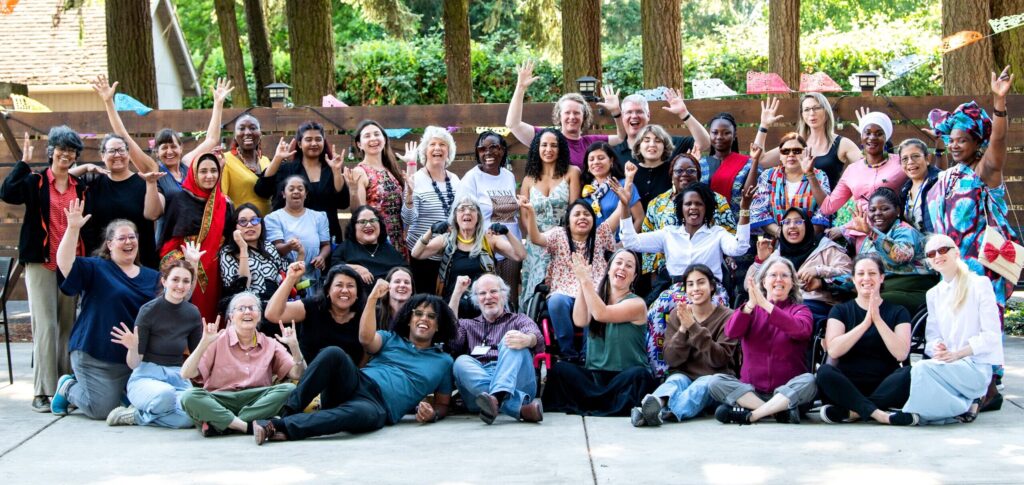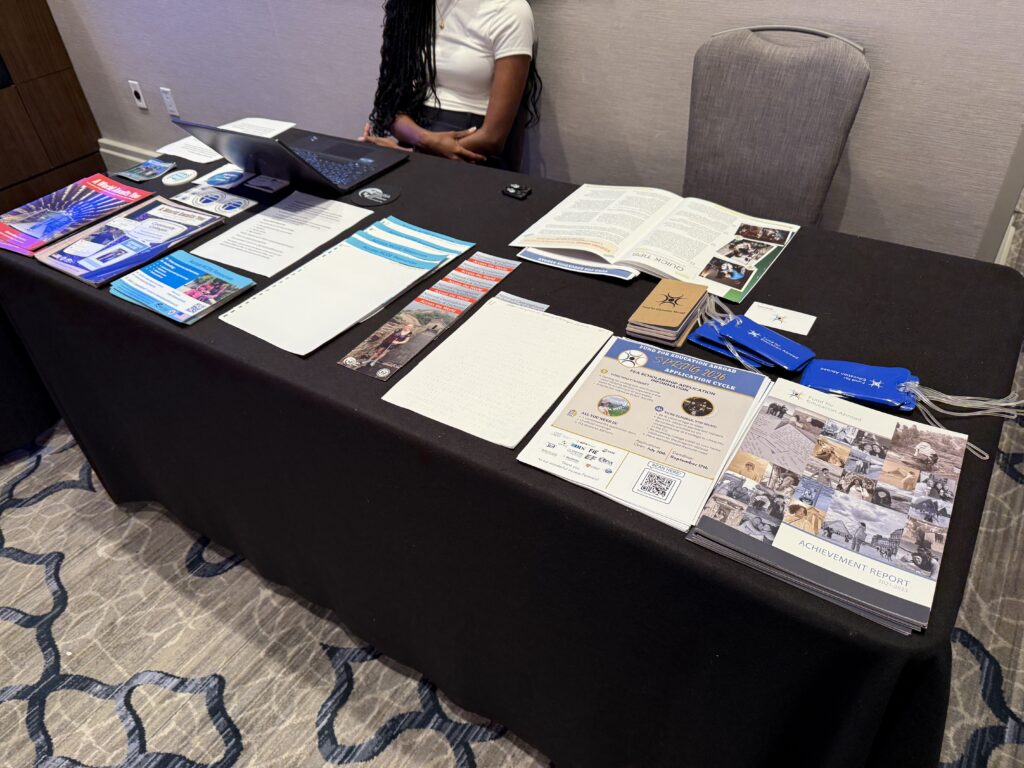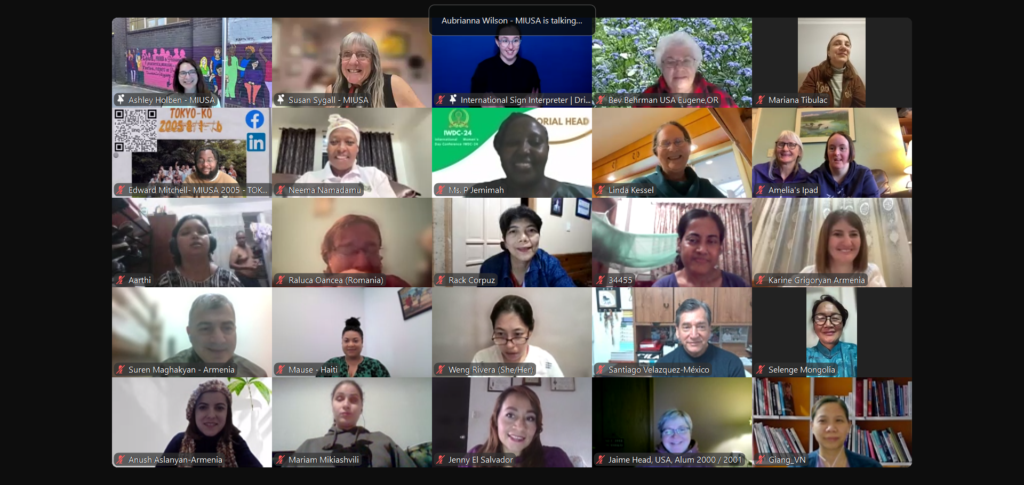There was a spectacular moment during the 2025 Women’s Institute on Leadership and Disability (WILD) when Mayor Knudson, the mayor of Eugene, Oregon, addressed our delegation of 20 disabled women leaders from 18 countries as well as all of the homestay families who had opened their homes. During this address, she welcomed the delegates to our city and expressed how Eugene’s ongoing commitment to include all of its citizens and visitors is one of its greatest strengths.
She also presented a unique offer and opportunity to the WILD women: if any of them could contact the mayors or other high-level government officials of their own cities, Mayor Knudson would meet with them on a Zoom meeting, mayor to mayor, to speak to some of the successes and challenges around making a city inclusive of people with disabilities.
Some of the WILD delegates, including Jules Daudi from Zimbabwe and Marlise Montcho from Benin, rose to the challenge and invited their mayors, city officials, and other community leaders to join the call, including Kadoma City Mayor Nigel Ruzario in Zimbabwe and Abdoul-Wahab Salahou Yekini, an influential local leader in Cotonou City, Republic of Benin. These esteemed guests from Zimbabwe and Benin shared their visions, challenges, and actions towards improving accessibility in their cities, recognizing the leadership from the disability community as the way forward.
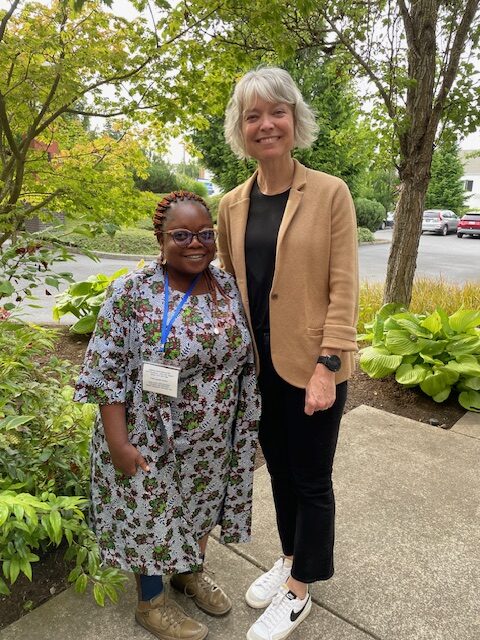
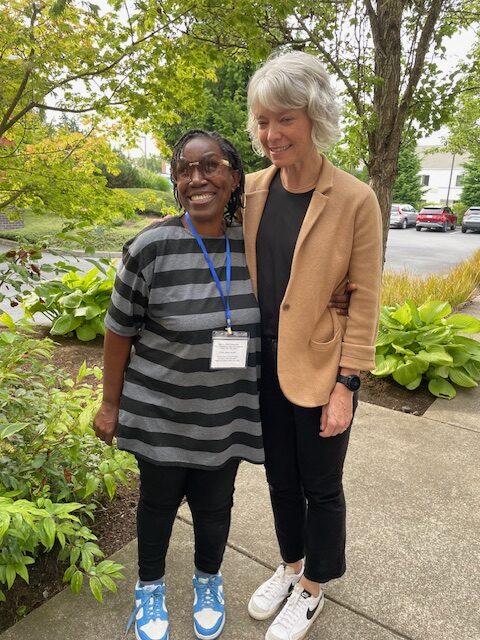
Above: Eugene’s Mayor Kaarin Knudson with WILD delegates Marlise Montcho of Benin (left) and Jules Daudi of Zimbabwe (right) in Eugene, Oregon in July 2025. Header photo: the Mayor with all 20 of the 2025 WILD delegates from 18 countries.
Another guest speaker on the call was John Ahlen of Lane Transit District, who discussed strategies that local governments can use to promote accessible transportation, whether by equipping buses with lifts and other accessible design features or by ensuring that pathways and sidewalks are designed for accessibility and inclusion of people with all types of disabilities and others in mind. Jules and Marlise described their positive experiences navigating the bus system independently as women with visual impairments and physical disabilities during their time in Eugene.
All leaders know the importance of relationships, and disability rights leaders especially know that building positive relationships with the mayor and other high-level government officials can be key to driving real changes that ensure disabled people have the same rights and opportunities as non-disabled people.
In a world filled with so much turbulence, it was wonderful to see how people-to-people diplomacy – both in-person and virtual – can create such connections between leaders in Eugene, Oregon, and leaders in cities around the world. We want to thank Mayor Knudson, John Ahlen, all of the other high-level government officials from Zimbabwe and Benin who joined us for this call, and of course our WILD delegates who made it possible!
Want more information about accessible public transportation for people with disabilities around the world? Explore the resources of Access Exchange International (AEI), whose newsletter explores “advancements and challenges in accessible transportation worldwide, with a particular focus on developing economies.” Although AEI is no longer active, you can browse AEI publications online.
Sign up for our E-News
